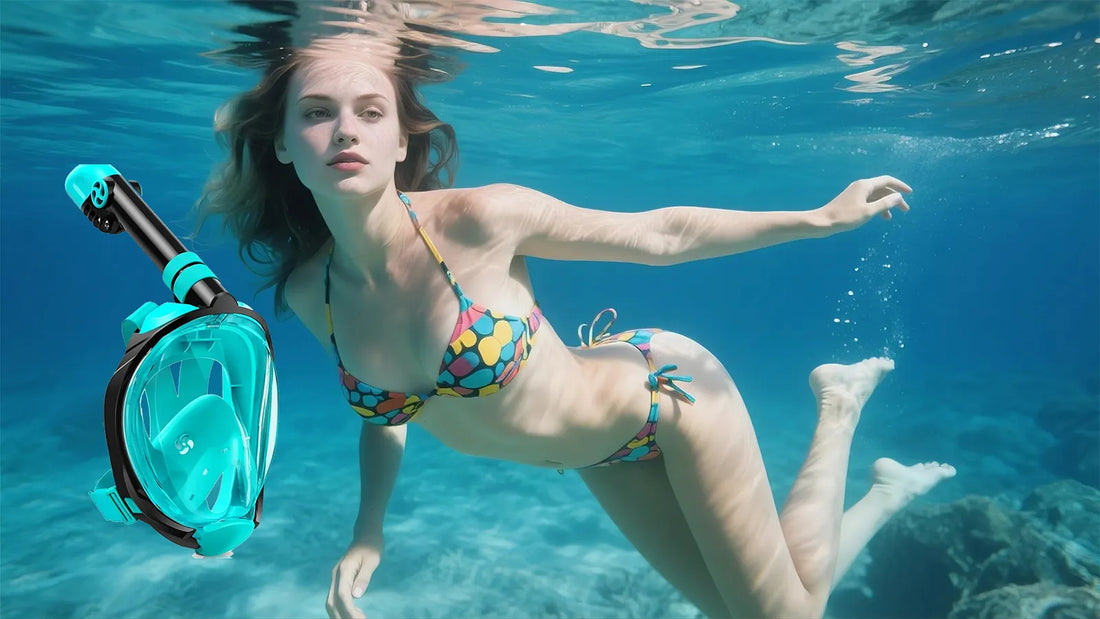Scuba diving is an exhilarating activity that allows you to explore the underwater world like never before. But one of the most common questions people ask is, 'How old to go scuba diving?' The answer isn't as straightforward as you might think, as it depends on various factors, including certification programs, physical readiness, and safety considerations. This article will guide you through everything you need to know about the age requirements for scuba diving and how to ensure a safe and enjoyable experience for divers of all ages.
Minimum Age Requirements for Scuba Diving
The minimum age to start scuba diving varies depending on the certification agency and the type of diving. Most recognized certification organizations allow children as young as 10 years old to participate in junior scuba diving programs. These programs are designed to introduce young divers to the basics of scuba diving in a controlled and safe environment. However, the depth and complexity of the dives are limited for junior divers to ensure their safety.
Junior Scuba Diving Programs
Junior scuba diving programs are tailored specifically for younger participants. These programs focus on teaching essential skills, safety protocols, and the fundamentals of underwater exploration. Participants in junior programs are typically restricted to shallower depths, usually no more than 40 feet, and must always dive under the supervision of a certified instructor or guardian. Once they reach the age of 15, they can upgrade their certification to a standard open water diver certification, which allows for deeper and more advanced dives.
Physical and Mental Readiness
Age is just one factor to consider when determining if someone is ready to scuba dive. Physical and mental readiness are equally important. Scuba diving requires a certain level of physical fitness, including the ability to swim and handle the equipment. Additionally, divers need to be mentally prepared to handle the challenges of being underwater, such as managing buoyancy, equalizing pressure, and staying calm in unexpected situations. Parents and guardians should assess their child's maturity and comfort level in the water before enrolling them in a scuba diving program.
Safety Considerations for Young Divers
Safety is paramount when it comes to scuba diving, especially for young divers. It's essential to choose a reputable training program with experienced instructors who prioritize safety. Young divers should always be accompanied by a certified adult or instructor, and they should avoid diving in challenging conditions, such as strong currents or low visibility. Proper equipment fit is also crucial, as ill-fitting gear can lead to discomfort or accidents. Parents should ensure their child receives thorough training and understands the importance of following safety protocols.
Benefits of Scuba Diving for Young People
Scuba diving offers numerous benefits for young people, including physical exercise, improved confidence, and a deeper appreciation for marine life and conservation. It's a unique way to explore the natural world and develop valuable skills such as problem-solving, teamwork, and environmental awareness. For many young divers, scuba diving becomes a lifelong passion that opens doors to new adventures and opportunities.
Tips for Parents of Young Divers
If you're considering scuba diving for your child, there are several steps you can take to ensure a positive experience. Start by researching reputable certification programs and instructors. Encourage your child to practice swimming and build their water confidence before starting scuba lessons. Invest in quality equipment that fits properly and is appropriate for their age and skill level. Finally, be supportive and patient, as learning to scuba dive can be challenging but incredibly rewarding.
Scuba Diving as a Family Activity
Scuba diving can be a fantastic family activity that brings everyone closer together. Many families enjoy diving trips to explore coral reefs, shipwrecks, and underwater ecosystems. Diving as a family allows parents to share their love of the ocean with their children and create lasting memories. It's also an opportunity to teach kids about marine conservation and the importance of protecting our oceans.
Preparing for Your First Scuba Dive
Whether you're a young diver or an adult, preparing for your first scuba dive is an exciting process. Start by completing a certified scuba diving course, which will teach you the necessary skills and knowledge. Practice using your equipment in a controlled environment, such as a swimming pool, before venturing into open water. Stay hydrated, get plenty of rest, and avoid alcohol before diving. Most importantly, listen to your instructor and follow all safety guidelines to ensure a safe and enjoyable experience.
Scuba diving is an incredible adventure that can be enjoyed by people of all ages, as long as they meet the necessary requirements and prioritize safety. Whether you're a young diver eager to explore the underwater world or a parent considering scuba diving for your child, understanding the age requirements and preparation steps is key. With the right training, equipment, and mindset, scuba diving can become a lifelong passion that opens up a whole new world of possibilities. So, are you ready to take the plunge and discover the wonders beneath the surface?

